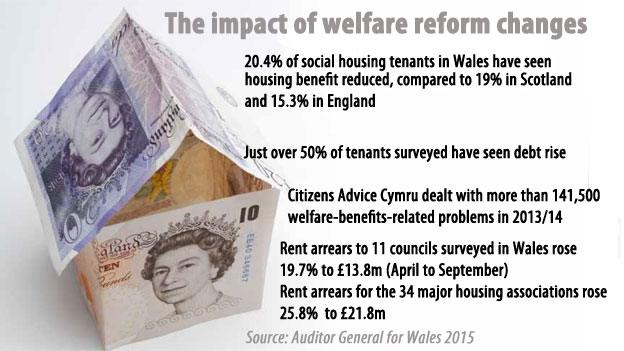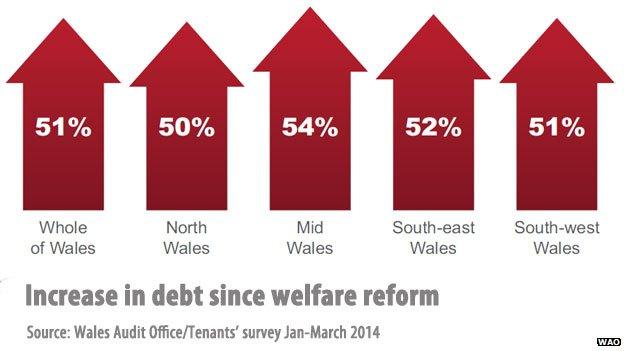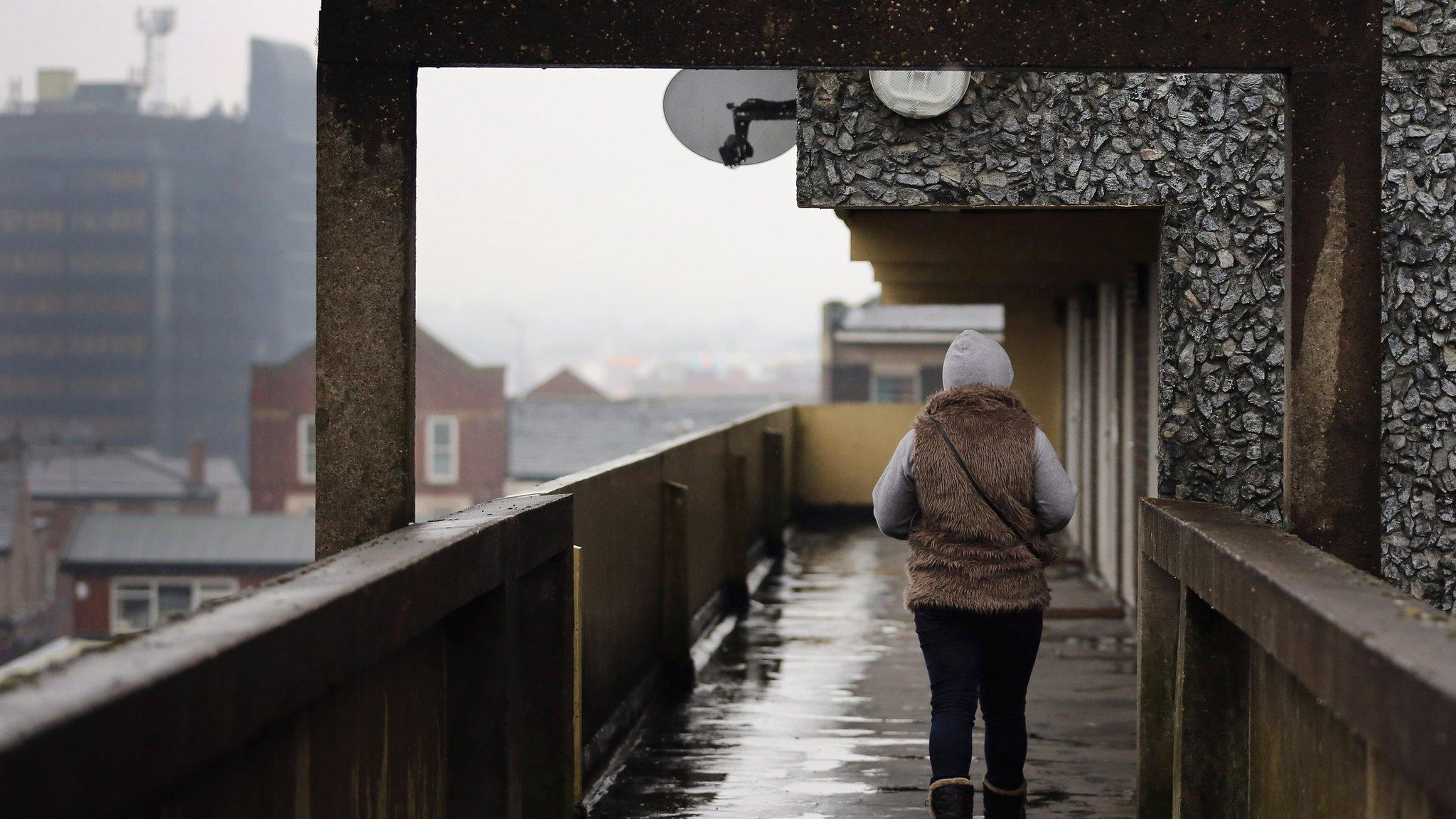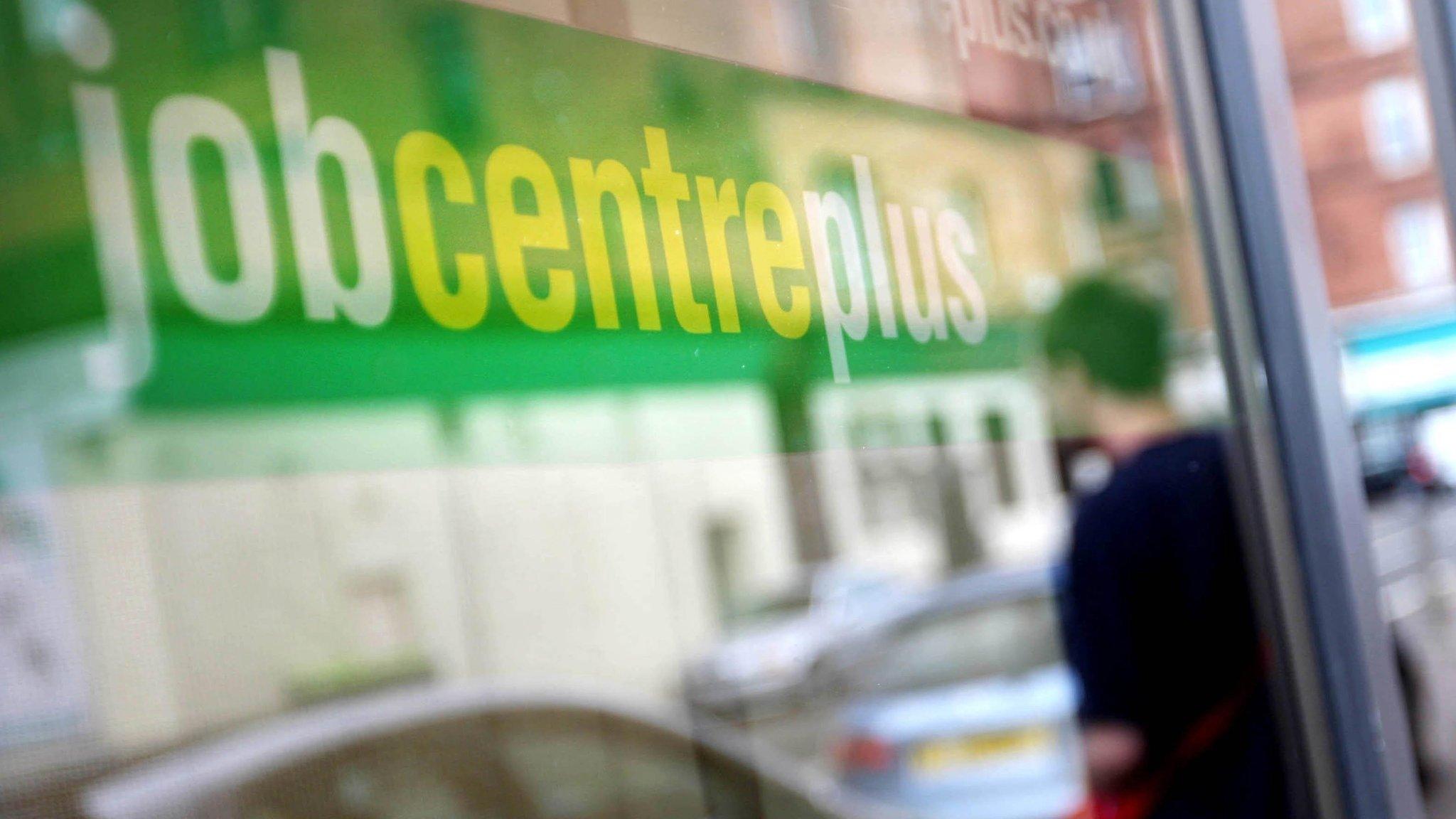Welfare reforms 'hit Wales hardest' - Auditor General for Wales
- Published
Huw Vaughan Thomas says there are not enough smaller homes for tenants
Rent arrears are rising and debts mounting as welfare reforms hit home in Wales, an official watchdog has warned.
The auditor general for Wales says welfare system changes are having a greater impact than in England and Scotland.
Levels of rent debt rose by nearly a quarter in the first six months after the spare room subsidy ended and the benefit cap came in.
The UK government says the changes are "absolutely necessary".
Department of Work and Pensions (DWP) said its welfare reform programme - which started in April 2013 - will reduce annual spending on housing benefit by around £26m a year in Wales.
To help do this, payments have been reduced for claimants with spare bedrooms - this has been dubbed the "bedroom tax" by critics.
A benefit cap has also been introduced restricting the amount people can claim.

The Auditor General for Wales Huw Vaughan Thomas wanted to see how councils and housing associations were dealing these changes.
His officials visited nine councils, five housing associations and surveyed more than 400 tenants in Wales.
Among his findings:
The end of the spare room subsidy has led to a rising demand for smaller homes but numbers are limited and councils and housing associations have done little to increase their supply
There has been limited take up of lodgers or use of the private rented homes
Housing associations face greater costs in managing empty homes while collecting rent has become more complex
Things could get "much worse" when tenants are paid benefits direct rather than the money being paid to their landlord
Kay Harris from Betws near Bridgend describes the difficulty in managing after having to pay £12 a week more for having a spare room
Meeting a new demand for smaller homes is not easy, says Duncan Forbes from Torfaen-based Bron Afon housing association
Mr Thomas said councils and social housing providers need to work together more closely to help reduce the risks to tenants from the reforms so far and those still in the pipeline.
But Ryan Bourne, head of public policy for the Institute of Economic Affairs, told BBC Radio Wales: "It's important that we have fairness for tax payers as well, because ultimately this money is coming from other people.
"The question then is, is the reform feasible and is the reform deliverable? And the difficulty we've got is in terms of alternative accommodation, we know we've got a bit of a shortage so people being able to downsize is perhaps not as easy as it should be."
Welsh Local Government Association spokesman and Caerphilly councillor Keith Reynolds said the report showed the "disproportionate impact" the welfare changes would have in Wales and the "significant social and economic" consequences for "vulnerable households and communities".
The DWP added: "Ending the spare room subsidy was absolutely necessary to return fairness to the system and make better use of social housing stock.
"We made over £15m in discretionary housing payments available to Welsh local authorities so that vulnerable people can receive additional support.
"And we continue to spend £94bn a year on benefits to provide a safety net so that no-one need struggle to meet their basic needs."

- Published11 April 2013
- Published6 February 2014

- Published15 December 2014
